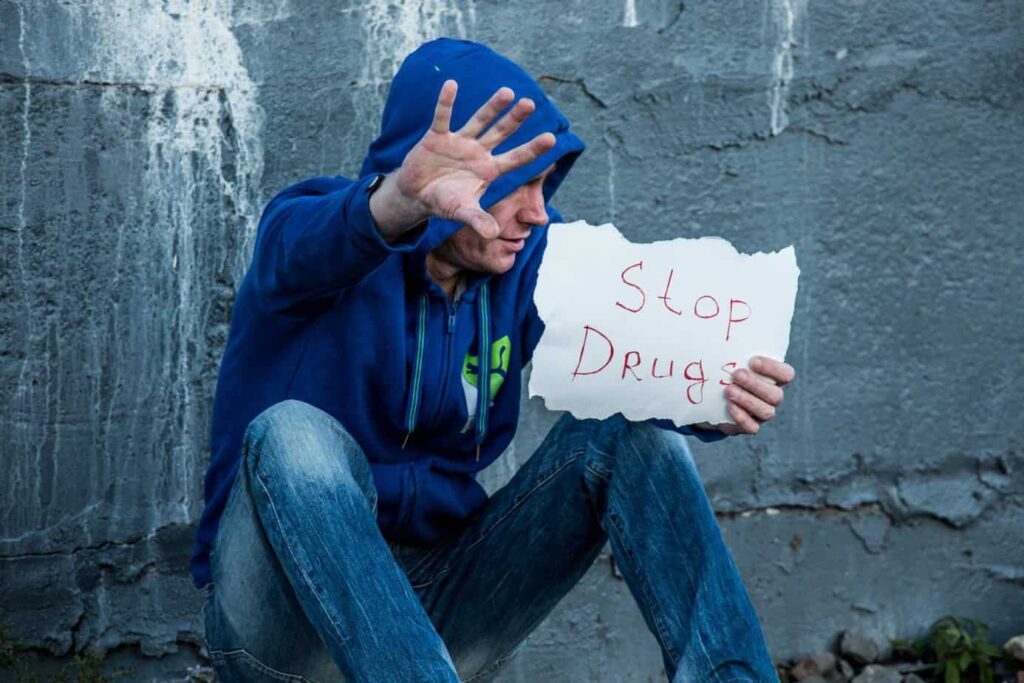
Understanding NAS: When Babies Experience Withdrawal
Learn about infant opiate withdrawal symptoms, diagnosis, and modern treatments. Find support for mothers and babies affected by NAS.

March 2, 2020
Opiate detox is a professional medical treatment for people who need help recovering from opiate use disorder. It is the first stage of addiction treatment and usually takes place at an opiate rehab center where people can experience a safe recovery without distractions.
Here’s more about who can benefit from detox, and where this treatment can be found in Florida.
Opiate detox is a type of medical detox that helps people safely withdraw from opiates and manage physical symptoms of withdrawal. It treats only physical dependence on opiates and not the underlying causes of addiction, which is typically treated after detox at a rehab facility that incorporates behavioral therapy and counseling. Detox usually involves the use of medications developed specifically to treat opiate dependence that effectively reduces and relieves opiate withdrawal symptoms.
Anyone who has become physically dependent on opiates and needs help discontinuing use may need and benefit from a detox. People who have been using a prescription to treat chronic pain for an extended period of time may need it, as well as those who may have become dependent due to recreational use. If you use opiates and experience withdrawal symptoms when stopping use, opiate detox can help you get safely through withdrawal without severe pain, discomfort, or drug cravings.
Physical dependence on opiates is characterized by the presence of withdrawal symptoms when a person abruptly discontinues use. These withdrawal symptoms can begin anywhere between 8 and 48 hours after the last dose, depending on the type of medication being used.
Common opiate withdrawal symptoms include:
If you or a loved one experiences one or more of the above symptoms when stopping opiates, please understand that detox can relieve these symptoms and effectively treat dependence. It is not recommended for women who are pregnant, since withdrawal may increase the risk for miscarriage or premature delivery. The recommended treatment approach for pregnant women is methadone maintenance treatment, which allows for the gradual tapering over a period of time.
Opiate detox usually takes place in a safe, controlled medical environment where patients can be closely monitored as they go through withdrawal. The environment may be hospital-like, or quiet and relaxing in a luxury residential setting at an opiate rehab center.
The medical staff on-site will perform an assessment and evaluation for each patient at the time of intake to determine which opiates were being used, and the duration of use. This allows doctors and nurses to develop a customized detox plan and take the necessary steps to eliminate withdrawal symptoms and reduce complications.
Following intake and assessment, patients will receive medications that replace the opiates that were being used. Buprenorphine is one of the most common medications used in detox and works similarly to opiates in the way it binds to opiate receptors in the brain. However, unlike opiates, buprenorphine doesn’t produce the same euphoric effects—meaning patients who use this medication can stop using without experiencing euphoria and feeling the effects of withdrawal.
Other medications that may be used during detox are methadone and naltrexone. Methadone works similarly to buprenorphine, while naltrexone blocks the euphoric effects of opiates. The doctors will prescribe medications that work best for you or your loved one based on factors such as medical history and the severity of dependence.
Opiate detox is always the first stage of treatment for opiate use disorder. Some treatment centers may combine detox with behavioral therapies and counseling to treat the disorder in full.
Opiate detox can last anywhere between 4 and 20 days, depending on the medication(s) being used and on factors such as the patient’s health status, level of dependence, and comorbidities. For instance, a patient in poor health with a weakened immune system may take longer to recover compared to someone in better health who used it for a short period.
Withdrawal from short-acting opiates like heroin takes an average of between 4 and 10 days, with symptoms setting in 8 to 24 hours after the last use. Withdrawal from long-acting opiates like oxycodone takes an average of between 10 and 20 days, with symptoms setting in 12 to 48 hours after the last use.
In some instances, certain symptoms of withdrawal may linger beyond the length of detox and continue for several weeks or months. This is known as post-acute withdrawal syndrome, which is characterized by insomnia, a general feeling of reduced well-being, and strong cravings. Aftercare in the form of support groups and medication maintenance is often needed to help patients remain abstinent and avoid relapse following detox.
After going through detox, many patients transition into an opiate rehab program where they can learn skills for staying sober and recover from addiction. Opiate rehab treats addiction using a variety of individual and group behavioral therapies, including cognitive-behavioral therapy, motivational enhancement, family therapy, and many more. Some rehab centers even offer fun, enjoyable therapies such as music therapy, art therapy, equine therapy, and outdoor therapy.
Scientific evidence suggests that the relapse rate after opiate detox ranges from 72 to 88% after 12 to 36 months. Relapse often occurs due to post-acute withdrawal symptoms like insomnia and opiate cravings. However, resuming use after becoming abstinent increases the risk for an overdose since the body is no longer tolerant of high doses after detox. In 2017, an estimated 47,600 people in the U.S. died from an opiate-related overdose.
Participating in an opiate rehab program after detox is an effective way to stay on track with abstinence and avoid relapse. Rehab and aftercare programs can help patients stay connected to the recovery community and offer a high level of support. Opiate detox centers that don’t offer addiction recovery programs can refer patients to treatment centers where they can continue their journey to achieving long-term sobriety.
Florida offers one of the greatest settings for opiate detox and addiction treatment, given its hundreds of miles of scenic beaches and coastline. Summer House Detox Center offers opiate detox in Florida to help state residents and out-of-state visitors experience a safe, relaxing, and fulfilling recovery.
Summer House Detox Center is located in Golden Glades, Florida just minutes away from the beach. Amenities include yoga, jacuzzi, massage treatments, large bedrooms with private baths, flatscreen TVs in each bedroom, and gourmet meals prepared by a 4-star chef. Patients can relax and focus completely on recovery as they go through opiate detox, and attend Narcotics Anonymous (NA) meetings on-site before transitioning to a rehab program.
If you or a loved one is suffering from opiate use disorder and needs help, contact Summer House Detox Center today at (800)-719-1090, or fill out our private contact form to learn more about our safe, proven, and effective opiate detox services. We offer detox treatment in West Palm Beach and provide all the tools required for your recovery. Visit us at 13550 Memorial Highway Miami, FL 33161.
Sources:

Learn about infant opiate withdrawal symptoms, diagnosis, and modern treatments. Find support for mothers and babies affected by NAS.

Unlock lasting freedom! Learn the true methadone detox success rate, compare treatments, and find your path to recovery in Miami.

“Rapid heroin detox”: Safe or myth? Learn the dangers, costs, and why anesthesia-assisted detox is ineffective. Find proven alternatives.
For immediate assistance, please call our Admissions Specialists at 800-719-1090.
Speak With A Qualified Addiction Specialist 24/7